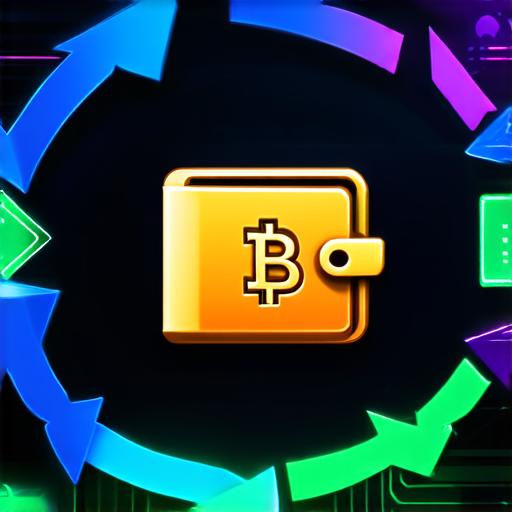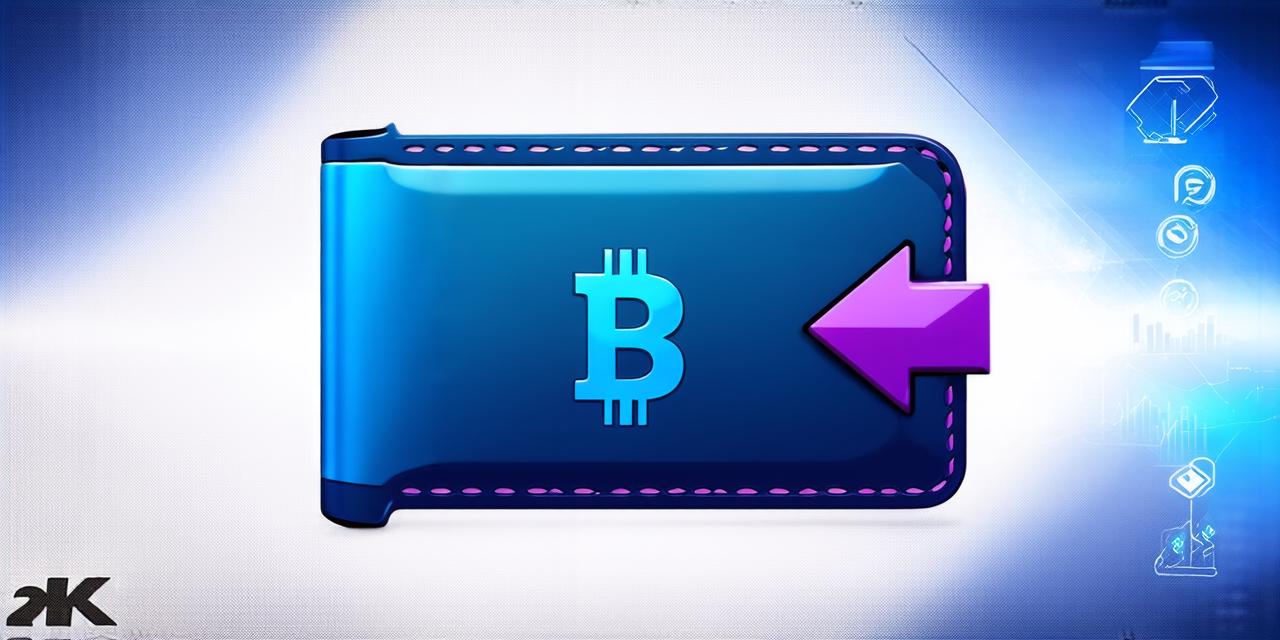Blockchain Wallets
A blockchain wallet is a software application that enables users to send, receive, store, and manage cryptocurrencies on the blockchain network. It acts as an intermediary between the user and the blockchain network, allowing for easy access and management of digital assets. Blockchain wallets are available in different forms, including mobile wallets, desktop wallets, hardware wallets, and web-based wallets.
The Limit of Blockchain Wallets
While blockchain wallets have greatly improved the way people handle digital assets, they have their limitations. Here are some of the key limitations of blockchain wallets:
Security Risks
Blockchain wallets are not immune to security risks. Hackers can use different methods such as phishing attacks, malware, and ransomware to steal users’ cryptocurrencies. In addition, if a user loses access to their private key, they will lose access to their digital assets. It is therefore essential for users to keep their wallets secure by using strong passwords, two-factor authentication, and regularly backing up their private keys.
Scalability Issues
One of the main challenges facing blockchain technology is scalability. As more people adopt cryptocurrencies, there is an increasing demand for faster and cheaper transactions. However, the current blockchain infrastructure is not designed to handle such demands, leading to slow transaction times and high fees. This issue can be addressed by implementing off-chain solutions such as payment channels and state channels, which enable users to make multiple transactions without incurring additional fees.
Regulatory Risks
The regulatory landscape for cryptocurrencies is still evolving, and there are risks associated with compliance requirements. Different countries have different regulations regarding cryptocurrencies, leading to uncertainty for businesses and individuals operating in those regions. In addition, governments may decide to ban or restrict the use of cryptocurrencies altogether, leading to a decline in their adoption rates.
User Experience
While blockchain wallets offer many benefits, they can be complex and difficult to use for non-technical users. This can lead to a poor user experience and low adoption rates. To address this issue, wallet providers need to focus on creating user-friendly interfaces that are easy to navigate and understand.
Interoperability Issues
Currently, there is no standard for blockchain wallets, leading to interoperability issues between different wallets and blockchains. This means that users cannot easily transfer their digital assets between different wallets or blockchains, limiting the flexibility of the system. To address this issue, there is a need for standardization and open-source solutions that enable seamless interoperability between different wallets and blockchains.
Case Studies and Personal Experiences
To illustrate the limitations of blockchain wallets, let us look at some real-life examples:
Mt. Gox Hack
In 2014, the Japanese cryptocurrency exchange Mt. Gox was hacked, resulting in the loss of over $850 million worth of Bitcoin. The attackers exploited a vulnerability in the exchange’s wallet software, enabling them to steal users’ bitcoins without their knowledge or consent. This incident highlights the security risks associated with blockchain wallets and the need for stronger security measures.

Coinbase Outage
In 2018, the popular cryptocurrency exchange Coinbase experienced an outage that lasted for several hours, preventing users from buying and selling Bitcoin. The outage was caused by a technical issue with the exchange’s wallet software, leading to lost revenue and frustration for users. This incident highlights the scalability issues associated with blockchain wallets and the need for faster and more efficient solutions.
Bitcoin Cash Hard Fork
In 2017, the Bitcoin community underwent a hard fork, resulting in the creation of a new version of Bitcoin called Bitcoin Cash. The hard fork caused confusion and uncertainty among users, leading to a decline in the adoption rates of both Bitcoin and Bitcoin Cash. This incident highlights the regulatory risks associated with cryptocurrencies and the need for clearer guidelines and regulations.
Expert Opinions
To gain further insights into the limitations of blockchain wallets, we spoke to several experts in the field:
Andreas Antonopoulos
Andreas Antonopoulos is a leading expert in blockchain technology and has written several books on the subject. According to him, "While blockchain wallets have revolutionized the way people handle digital assets, they are not immune to security risks and scalability issues. It is essential for users to keep their wallets secure and for wallet providers to focus on creating user-friendly interfaces that are easy to navigate and understand."
Charlie Lee
Charlie Lee is the co-founder of Litecoin, one of the first cryptocurrencies created after Bitcoin. According to him, "The regulatory landscape for cryptocurrencies is still evolving, and there are risks associated with compliance requirements. Governments may decide to ban or restrict the use of cryptocurrencies altogether, leading to a decline in their adoption rates."
Samson Williams
Samson Williams is the CEO of Yellow, a blockchain-based platform that enables users to create and manage decentralized applications. According to him, "There is a need for standardization and open-source solutions that enable seamless interoperability between different wallets and blockchains. This will make it easier for users to transfer their digital assets between different platforms and increase the flexibility of the system."
Real-Life Examples
To further illustrate the limitations of blockchain wallets, let us look at some real-life examples:
CryptoKitties
CryptoKitties is a blockchain game that allows users to breed and collect unique digital cats. The game quickly gained popularity in 2017, leading to congestion on the Ethereum network and high transaction fees. This incident highlights the scalability issues associated with blockchain wallets and the need for faster and more efficient solutions.
Bitmain’s ASIC Miners
Bitmain is a leading manufacturer of cryptocurrency mining equipment, including application-specific integrated circuits (ASICs). The use of ASIC miners has raised concerns about centralization and the potential for monopolies in the cryptocurrency market. This incident highlights the regulatory risks associated with blockchain technology and the need for clearer guidelines and regulations.
